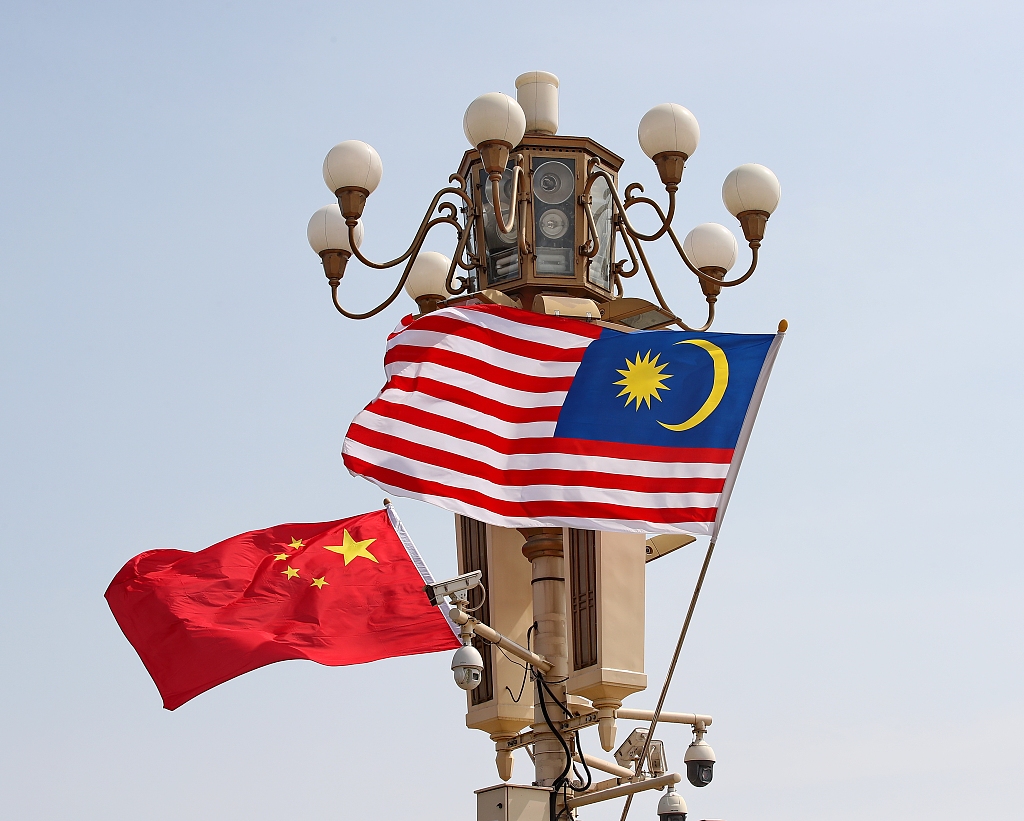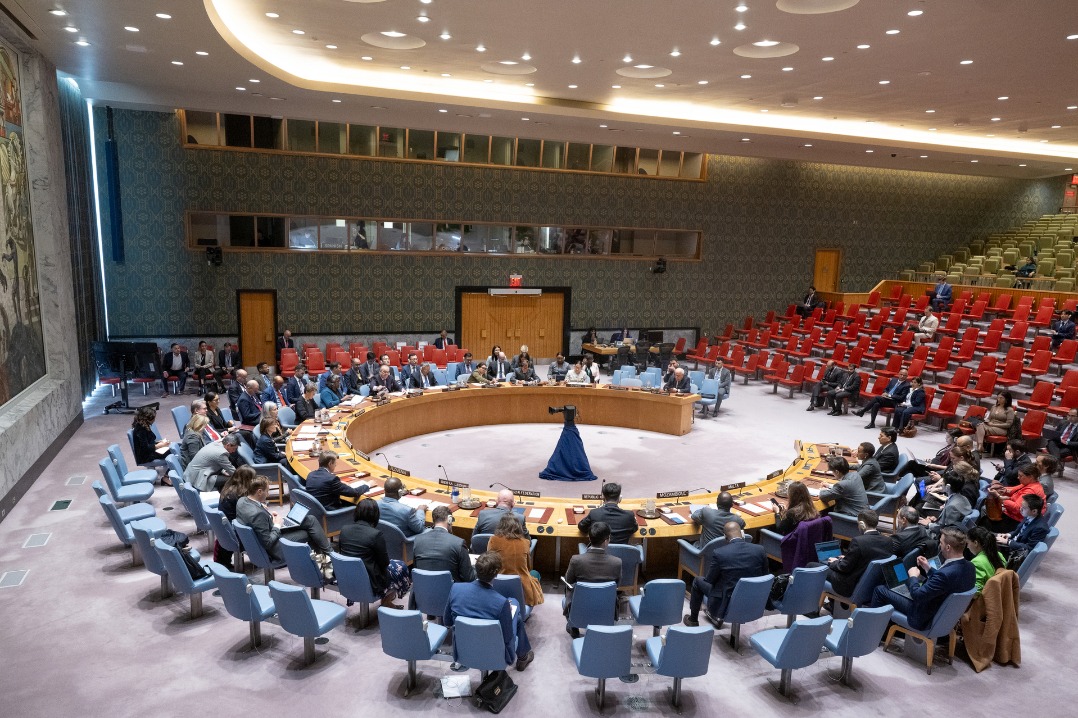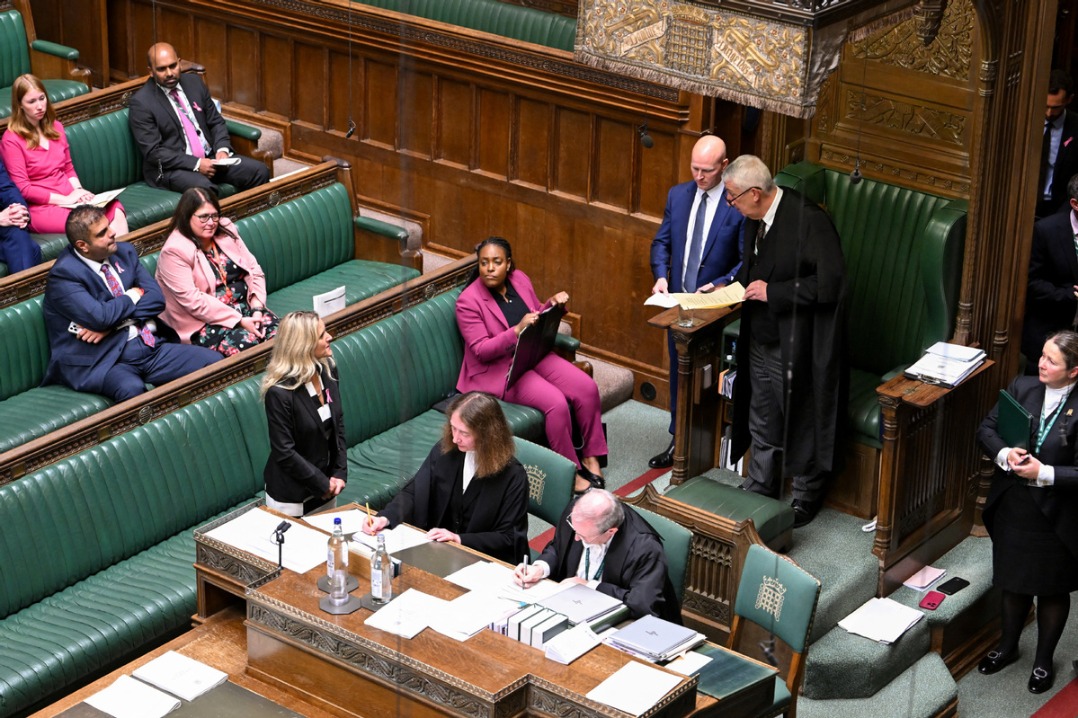Malaysia-China relations: An exemplar for ASEAN countries


As Malaysia and China commemorate the golden anniversary of their diplomatic relations, it is an opportune moment to reflect on the journey of this enduring relationship.
Malaysia's second prime minister, Tun Abdul Razak, made a historic visit to China in May 1974 amid the Cold War. He signed a communique with premier Zhou Enlai on May 31,1974, formally establishing diplomatic relations between Malaysia and China, making Malaysia the first ASEAN member nation to do so. Despite occasional challenges, over the past five decades, the Malaysia-China relationship has evolved into a mature and resilient partnership characterized by mutual respect, robust economic collaboration and vibrant cultural exchanges.
The establishment of diplomatic relations between Malaysia and China in 1974 was a groundbreaking event in Southeast Asian diplomacy, setting a precedent for other nations in the region. However, Malaysia's relationship with China during the first decade after the establishment of ties remained cautious due to the prevailing Cold War. Ordinary Malaysian citizens were not allowed to visit China without government approval.
Travel restrictions were only lifted after then Malaysian prime minister Mahathir Mohamad's first visit to China in November 1985, which was indeed a game changer.
It greatly facilitated engagements and interactions between the people of the two countries, thereby promoting people-to-people bond and solidifying the foundation for strong bilateral ties economically, culturally and politically.
Malaysia has also played a crucial role in developing China-ASEAN relations. In July 1991, then Chinese foreign minister Qian Qichen was invited to attend the ASEAN Ministerial Meeting as a guest of the Malaysian government, marking the beginning of China's engagement with ASEAN. China was accorded full dialogue partner status in July 1996.
Malaysia-China relations progressed significantly following the removal of travel restrictions, especially after the Cold War. Starting 1991, annual consultations were held alternately in Malaysia and China, serving as a mechanism for both sides to exchange views on bilateral and regional issues. It was renamed strategic consultation in 2010 to reflect the growing importance of Malaysia-China relations within the political security framework of the Asia-Pacific region. In 2013, Malaysia and China upgraded their relationship to a Comprehensive Strategic Partnership.
Malaysia's geographical proximity to China and its pragmatic foreign policy have enabled it to benefit tremendously from China's reform and opening-up. Malaysia-China trade in 2023 reached RM450.84 billion ($96.24 billion);in fact China has been the largest trading partner of Malaysia for the past 15 consecutive years. China also ranks among the top sources of foreign direct investment in Malaysia. It is noteworthy that Malaysia's early support for China's Belt and Road Initiative majorly boosted investments from China. A Chinese-owned energy company now accounts for about 14 percent of Malaysia's total power generation.
With a burgeoning middle class, China has become the third most important source of tourists for Malaysia. Geopolitical tension has also made Malaysia a preferred alternative destination for Chinese students seeking overseas education. There are currently about 40,000 Chinese students in Malaysia and 24,800 Chinese nationals holding Malaysia's My Second Home (MM2H) program pass, the largest among all other countries. The significant presence of Chinese nationals in Malaysia certainly could help promote China-Malaysia relations.
The mutual waiver of visa requirements between Malaysia and China, effective December 2023, marks yet another milestone with immense positive spillover effects. It provides a much-needed boost to Malaysia's tourism industry, facilitates trade and investment, fosters education and academic exchanges, thus enhancing people-to-people bond — the foundation of strong and close relations between countries.
The relationship between Malaysia and China has generally been stable and positive over the years, although it has experienced occasional hiccups. One notable example is the suspension of the East Coast Rail Link, China's flagship BRI project in Malaysia, in 2018 due to a change in government. However, following amicable negotiations, construction resumed in 2019. The realignment of certain sections of the rail route reduced construction costs. The 640km-long rail network connecting the East Coast and West Coast of Peninsular Malaysia is now expected to be completed in 2026.
Malaysia and China have overlapping territorial claims over some islands, rocks, reefs, shoals, and atolls in the South China Sea, which could potentially disrupt their cordial relations. This situation could be exploited amid big power rivalry or by parties with political motives. A minor incident could be exaggerated or distorted by external powers to further their geopolitical interests or politicized by local politicians seeking mileage. Such actions could lead to negative repercussions on national sentiments in both countries, thereby affecting bilateral relations.
Notwithstanding that, both countries have managed the South China Sea dispute rationally through dialogue and negotiation rather than adopting a confrontational approach. Malaysian Prime Minister Datuk Seri Anwar Ibrahim has stated that the South China Sea issue is not "insurmountable" and should not be "that contentious". He emphasized that while there is no easy solution to the problem, Malaysia and China should continue to engage in dialogue and consultation to seek a win-win outcome.
Over the past 50 years, Malaysia-China relations have matured and become resilient through mutual learning and respect, resolving differences through dialogue and consultations, and seeking cooperation for win-win outcomes. Both countries have successfully collaborated in navigating regional geopolitical complexities while respecting their respective sovereignty concerns.
Anwar regards China as an important neighbor with "pivotal "ties. He emphasized that the relationship with China should be enhanced and not left as it is. Malaysia's pragmatic approach to balancing economic interests and strategic independence exemplifies how ASEAN members can engage with China in a turbulent world.
Looking forward, with the leaders of both countries committed to building a China-Malaysia community with a shared future, bilateral relations between Malaysia and China are expected to reach new heights in the near future.
The author is the president of the Centre for New Inclusive Asia. The views do not necessarily reflect those of China Daily.

































